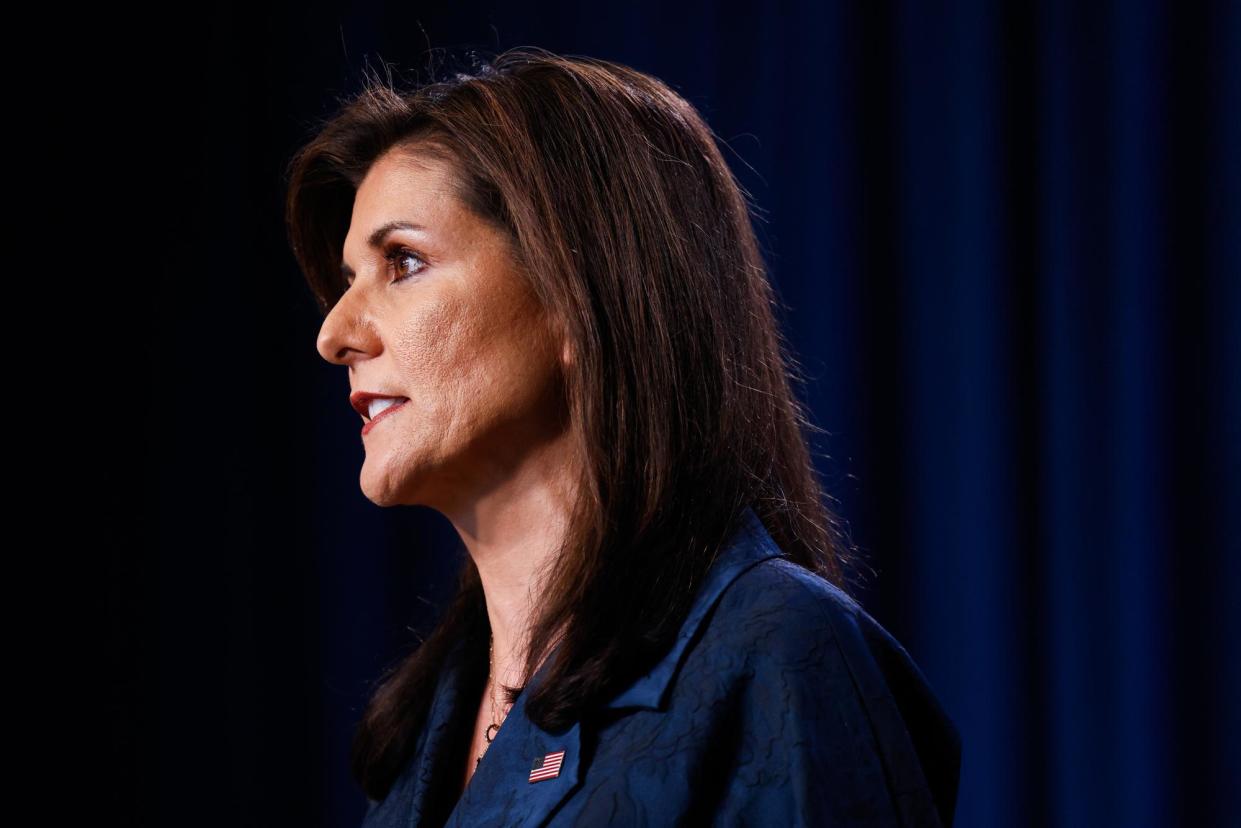Nikki Haley says she believes embryos created through IVF are ‘babies’

The Republican presidential candidate Nikki Haley has spoken in response to the recent supreme court ruling out of Alabama, revealing that she believes embryos created through in vitro fertilization, or IVF, are “babies”.
In a new interview with NBC, the former UN ambassador expressed support for the Friday ruling by Alabama’s supreme court that deemed that frozen embryos are “children”.
Related: Alabama university pauses IVF care after frozen embryos deemed ‘children’
“I had artificial insemination. That is how I had my son … One thing is to … save sperm or to save eggs but when you talk about an embryo, you are talking about, to me, that is a life. And so I do see where that is coming from when they talk about that,” Haley said.
Haley’s comments come after Alabama’s supreme court allowed two wrongful death lawsuits against a Mobile fertility clinic to proceed. The lawsuits stem from an incident in 2020 when a patient removed several embryos from the clinic’s cryogenic storage.
According to the lawsuit, “the subzero temperatures at which the embryos had been stored freeze-burned the patient’s hand, causing the patient to drop the embryos on the floor, killing them”.
A statement released by the Alabama supreme court justice Jay Mitchell said: “The central question presented in these consolidated appeals, which involve the death of embryos kept in a cryogenic nursery, is whether the act contains an unwritten exception to that rule for extrauterine children – that is, unborn children who are located outside of a biological uterus at the time they are killed.”
Mitchell added: “Under existing black-letter law, the answer to that question is no: the Wrongful Death of a Minor Act applies to all unborn children, regardless of their location.”
Asked whether she has any concerns on how the court’s ruling could hurt people seeking IVF treatment, Haley said: “I think that we have to have those conversations … Let’s never underestimate the relationship between a doctor and a patient.
“This is one where we need to be incredibly respectful and sensitive about it,” she said, adding: “I know that when my doctor came in, we knew what was possible and what wasn’t … Every woman needs to know, with her partner, what she is looking at. And then when you look at that, then you make the decision that’s best for your family.”
After news broke of Haley’s remarks, the Planned Parenthood Votes executive director Jenny Lawson issued a statement lambasting Haley.
“After months of trying to paint herself as moderate on reproductive rights, Nikki Haley has finally shown us her true colors. She said the quiet part out loud. When Nikki Haley says ‘Embryos, to me, are babies,’ she’s telling us they won’t stop at 15 or 16 weeks. Republicans were never going to stop with overturning Roe v Wade. They want to ban all abortions nationwide, throw doctors in jail, and come for other essential reproductive health care like birth control and IVF,” Lawson said.
“Politicians like Nikki Haley and Donald Trump do not care what happens to our families – they only care about eliminating our reproductive freedom. Voters should be outraged at this attack on their freedom. The only way to stop these attacks is to ensure that neither Nikki Haley nor Donald Trump set foot in the White House.”
Haley, who is currently trailing behind Donald Trump in the 2024 Republican presidential contest, has previously downplayed the federal abortion ban. Instead, the former South Carolina governor has said that it was up to each state to determine their limits on abortion.
During her time as governor, Haley signed a bill into law that bans abortion at 20 weeks and does not provide exceptions for rape or incest.
• This article was amended on 22 February 2024 to correct the year a patient removed several embryos from cryogenic storage at a clinic in Mobile, Alabama. An earlier version said the year was 2021, rather than 2020.
